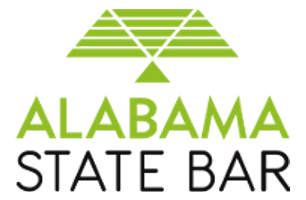You could be missing out on mortgage forbearance opportunities under the CARES Act.
Between the pandemic and subsequent economic consequences, there are plenty of people struggling with mortgage payments right now. In March of 2020, Congress passed, and President Trump signed the CARES Act into law. Amongst other things, the CARES Act has provisions that provide mortgage forbearance opportunities to help people struggling who are having COVID related financial problems. Unfortunately, many people are not taking advantage of these opportunities. My goal of this post is to provide you with some general information about how this unique mortgage forbearance opportunity may apply to you and your family. The biggest takeaway from this is to take action (if you need it), don’t wait until it is too late.
What is mortgage forbearance?
A forbearance is a temporary suspension of your mortgage payments.
Under the CARES Act, if you have a federally backed mortgage (your mortgage is backed or insured by Fannie Mae, Freddie Mac, VA, USDA, or FHA, and you are experiencing COVID-related financial problems, you can request a mortgage forbearance.
How do I get a forbearance on my mortgage?
The first step is to pick up the phone and call your mortgage servicer.
Assuming you have a federal back mortgage and you are having COVID related financial problems, the next step will be to discuss with your lender your forbearance options and how long your mortgage will be in forbearance. Remember to request written confirmation.
What you should know is, forbearance is not forgiveness. Your missed payments during the forbearance period are not erased and you are responsible for repaying any missed payments in the future. Near the end of your mortgage forbearance, you should be working with your mortgage company to discuss how the missed payments will be repaid. Depending on many factors, there may be different repayment options available.
Some of those factors (this list is not exhaustive) are:
- who owns your loan;
- was your mortgage loan current or less than 30 days delinquent as of March 1, 2020;
- your current financial situation.
HUD.gov that has some useful information here.
One thing to remember is that these loan modification programs are subject to change based upon what happens with the pandemic. Upcoming legislation in Congress could bring even more changes.
How long does forbearance last?
A CARES Act mortgage forbearance lasts for up to 180 days. At the end of your initial forbearance period, you may request an additional 180-day forbearance. This means that your loan could be eligible for up to a one-year forbearance.
What are the benefits of forbearance?
If you need the protections of a mortgage forbearance, make sure you speaking with your attorney or speaking with your mortgage company. You are probably aware that there are negative consequences if you do not make your mortgage payments on time. Late fees are only the beginning of problems you could face if you stop paying your mortgage payments. Additional fees alone will add to the overall balance you owe.
Under the CARES Act, if you’re in an active forbearance, the mortgage company cannot add any additional fees or late charges to your loan other than what they could if you were making your payments. If your mortgage loan was current when you enter into a forbearance, your loan should be continued to report current during the forbearance period. It is a good idea to keep a check on your credit during the forbearance period to ensure proper reporting. You can pull your credit reports for free at AnnualCreditReport.com. Equifax, Experian, and TransUnion are offering free weekly online credit reports through April 2021.





